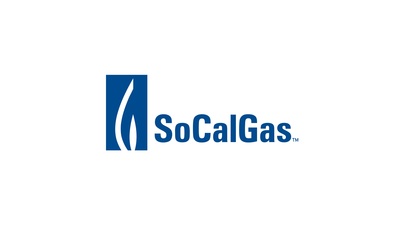SoCalGas is part of a consortium proposing to develop California's first full-scale direct air capture and storage network of regional hubs
The consortium will study the engineering requirements to capture 1 million metric tons of CO2 per year directly from the air
LOS ANGELES, Aug. 11, 2023 /PRNewswire/ -- A consortium that includes Southern California Gas Co. (SoCalGas) today was awarded funding by the U.S. Department of Energy for a proposal to develop California's first full-scale direct air capture and storage network of regional hubs.
"This is an important step in our efforts to help California decarbonize and reach net-zero goals. California's transition to net zero will require a broad portfolio of diverse energy sources and decarbonization tools to reduce emissions, including carbon management," said SoCalGas President Maryam Brown. "This project could remove one million metric tons of carbon dioxide directly from the air each year and aid in a more equitable energy transition. Our research has shown that carbon management, when combined with electrification and clean fuels, delivers the most affordable, resilient and technologically proven path to full carbon neutrality."
The U.S. Department of Energy announced that it selected the California Direct Air Capture hub for up to $11.8 million in funding to study a regional carbon management hub in Kern County. This project is among only five projects nationwide – the only located in California – to be selected funding to begin designing a carbon capture hub project under the department's $3.5 billion Direct Air Capture Hubs program. A total of 21 projects were selected in the announcement.
The California Direct Air Capture hub is made up of a consortium of nearly 40 organizations from across industry, community, tribes, government, technology, national labs, academia, labor, and workforce development. SoCalGas will play an important role in the effort, advancing a Front-End Engineering Design (FEED) study to transport carbon captured from the air to permanent carbon storage in the region. Efforts completed to date reflect that the hub could remove 1 million or more metric tons of CO2 annually – equivalent to taking more than 220,000 gasoline-powered passenger vehicles off the road each year – in line with the state's 20 million metric ton carbon removal target for 2030 and 100 million metric ton carbon removal target for 2045.
The U.S. Department of Energy's stated purpose for the proposed hub funding is to "accelerate the commercialization of CO2 removal via integrated capture from the atmosphere, processing, transport, and secure geologic storage and/or conversion." In addition to capturing carbon, the DOE suggests potential benefits could also include the removal other air pollutants like particulate matter (PM), nitrogen oxides (NOx) and sulphur oxides (SOx).
There is widespread agreement among scientists and policymakers that carbon management will be necessary to achieve a cleaner future. The State of California has signaled that carbon management will be critical to its efforts to reach net-zero by 2045, with Gov. Gavin Newsom writing, "We know from the Intergovernmental Panel on Climate Change that there is no path to carbon neutrality without carbon capture and sequestration."
Carbon management, along with other clean energy tools such as hydrogen and renewable natural gas, is a key component of the suite of tools SoCalGas has been developing as part of its overall clean energy strategy to reach-net zero greenhouse gas emissions by 2045.
For more information about SoCalGas' carbon management efforts, visit https://www.socalgas.com/carboncapture.
About SoCalGas
Headquartered in Los Angeles, SoCalGas® is the largest gas distribution utility in the United States. SoCalGas delivers affordable, reliable, and increasingly renewable gas service to over 21 million consumers across 24,000 square miles of Central and Southern California. Gas delivered through the company's pipelines will continue to play a key role in California's clean energy transition—providing electric grid reliability and supporting wind and solar energy deployment.
SoCalGas' mission is to build the cleanest, safest and most innovative energy infrastructure company in America. In support of that mission, SoCalGas aspires to achieve net-zero greenhouse gas emissions in its operations and delivery of energy by 2045 and to replacing 20 percent of its traditional natural gas supply to core customers with renewable natural gas (RNG) by 2030. Renewable natural gas is made from waste created by landfills and wastewater treatment plants. SoCalGas is also committed to investing in its gas delivery infrastructure while keeping bills affordable for customers. SoCalGas is a subsidiary of Sempra (NYSE: SRE), an energy infrastructure company based in San Diego.
For more information visit socalgas.com/newsroom or connect with SoCalGas on Twitter (@SoCalGas), Instagram (@SoCalGas) and Facebook.
This press release contains statements that constitute forward-looking statements within the meaning of the Private Securities Litigation Reform Act of 1995. Forward-looking statements are based on assumptions with respect to the future, involve risks and uncertainties, and are not guarantees. Future results may differ materially from those expressed or implied in any forward-looking statement. These forward-looking statements represent our estimates and assumptions only as of the date of this press release. We assume no obligation to update or revise any forward-looking statement as a result of new information, future events or otherwise.
In this press release, forward-looking statements can be identified by words such as "believes," "expects," "intends," "anticipates," "contemplates," "plans," "estimates," "projects," "forecasts," "should," "could," "would," "will," "confident," "may," "can," "potential," "possible," "proposed," "in process," "construct," "develop," "opportunity," "initiative," "target," "outlook," "optimistic," "poised," "maintain," "continue," "progress," "advance," "goal," "aim," "commit," or similar expressions, or when we discuss our guidance, priorities, strategy, goals, vision, mission, opportunities, projections, intentions or expectations.
Factors, among others, that could cause actual results and events to differ materially from those expressed or implied in any forward-looking statement include risks and uncertainties relating to: decisions, investigations, inquiries, regulations, denials or revocations of permits, consents, approvals or other authorizations, renewals of franchises, and other actions by (i) the California Public Utilities Commission (CPUC), U.S. Department of Energy, and other governmental and regulatory bodies and (ii) the U.S. and states, counties, cities and other jurisdictions therein where we do business; the success of business development efforts and construction projects, including risks in (i) completing construction projects or other transactions on schedule and budget, (ii) realizing anticipated benefits from any of these efforts if completed, and (iii) obtaining the consent or approval of third parties; litigation, arbitrations and other proceedings, and changes to laws and regulations; cybersecurity threats, including by state and state-sponsored actors, of ransomware or other attacks on our systems or the systems of third parties with which we conduct business, including the energy grid or other energy infrastructure, all of which have become more pronounced due to recent geopolitical events; our ability to borrow money on favorable terms and meet our obligations, including due to (i) actions by credit rating agencies to downgrade our credit ratings or place those ratings on negative outlook or (ii) rising interest rates and inflation; failure of our counterparties to honor their contracts and commitments; the impact on affordability of our customer rates and our cost of capital and on our ability to pass through higher costs to customers due to (i) volatility in inflation, interest rates and commodity prices and (ii) the cost of the clean energy transition in California; the impact of climate and sustainability policies, laws, rules, regulations, disclosures and trends, including actions to reduce or eliminate reliance on natural gas, increased uncertainty in the political or regulatory environment for California natural gas distribution companies, the risk of nonrecovery for stranded assets, and our ability to incorporate new technologies; weather, natural disasters, pandemics, accidents, equipment failures, explosions, terrorism, information system outages or other events that disrupt our operations, damage our facilities or systems, cause the release of harmful materials or fires or subject us to liability for damages, fines and penalties, some of which may not be recoverable through regulatory mechanisms or insurance or may impact our ability to obtain satisfactory levels of affordable insurance; the availability of natural gas and natural gas storage capacity, including disruptions caused by failures in the pipeline system or limitations on the withdrawal of natural gas from storage facilities; changes in tax and trade policies, laws and regulations, including tariffs, revisions to international trade agreements and sanctions, any of which may increase our costs, reduce our competitiveness, impact our ability to do business with certain counterparties, or impair our ability to resolve trade disputes; and other uncertainties, some of which are difficult to predict and beyond our control.
These risks and uncertainties are further discussed in the reports that the company has filed with the U.S. Securities and Exchange Commission (SEC). These reports are available through the EDGAR system free-of-charge on the SEC's website, www.sec.gov, and on Sempra's website, www.sempra.com. Investors should not rely unduly on any forward-looking statements.
Sempra Infrastructure, Sempra Infrastructure Partners, Sempra Texas, Sempra Texas Utilities, Oncor Electric Delivery Company LLC (Oncor) and Infraestructura Energética Nova, S.A.P.I. de C.V. (IEnova) are not the same companies as the California utilities, San Diego Gas & Electric Company or Southern California Gas Company, and Sempra Infrastructure, Sempra Infrastructure Partners, Sempra Texas, Sempra Mexico, Sempra Texas Utilities, Oncor and IEnova are not regulated by the CPUC.
SOURCE Southern California Gas Company



